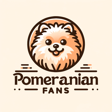In the meticulous realm of Pomeranian care, the knowledge of which foods are safe or toxic for these petite canines serves as a cornerstone in responsible pet ownership. The intricacies of dietary selections can significantly impact the well-being of these fluffy companions.
As we navigate the nuances of Pomeranian nutrition, uncovering the secrets behind what constitutes a safe or harmful food choice is essential for safeguarding their health. Stay tuned to unravel the mysteries surrounding Pomeranian dietary needs and unveil the key ingredients to promoting a thriving and balanced diet for these endearing pets.
Safe Foods for Pomeranians
Providing a well-balanced diet is crucial for the health and well-being of Pomeranians, ensuring they receive appropriate nutrients while avoiding potential harmful foods.
Safe foods for Pomeranians include high-quality dry kibble as a staple, supplemented with small amounts of lean meats like chicken or turkey, fruits such as apples and blueberries, and vegetables like carrots and green beans. These foods offer essential vitamins, minerals, and fiber necessary for a Pomeranian’s diet.
Additionally, treats like small pieces of cooked sweet potato or plain, air-popped popcorn can be given in moderation. It is important to monitor portion sizes to prevent overfeeding and obesity, maintaining a healthy weight for your Pomeranian.
Foods to Offer in Moderation
When considering the dietary needs of Pomeranians, it is important to be mindful of the foods that should be offered in moderation to maintain their overall health and well-being. While high fructose products, human infant formula, milk products (excluding cottage cheese and whole white yogurt), processed or canned cheese spreads, and margarine can be included in their diet, they should be given in controlled amounts. These foods can provide some nutritional benefits but should not be the primary source of nutrition for Pomeranians.
It is essential to balance their diet with high-quality dry kibble and reserve moist treats for occasional rewards. Ensuring a well-rounded diet with these foods offered in moderation can help promote the health and longevity of Pomeranians.
Foods Harmful to Pomeranians
Certain foods can be harmful to Pomeranians and should be avoided to maintain their well-being and health. Foods such as leaves and other parts of tomato, avocado, bell pepper, and eggplant plants can be toxic to Pomeranians. Additionally, bones, especially those that are not ground or crushed, should be avoided as they can pose a choking hazard or cause internal injuries.
Yeast dough and tomato sauce are other items that should be kept away from Pomeranians as they can cause digestive issues. Chinese food, which may contain ingredients like MSG, onions, or garlic, should also be avoided to prevent any adverse reactions. It is essential to be mindful of these harmful foods to ensure the safety and health of Pomeranians.
Toxic Foods to Avoid
To safeguard the health and well-being of Pomeranians, it is crucial to be vigilant about avoiding foods that are toxic to them. Certain foods can have harmful effects on Pomeranians and should be strictly avoided. Foods such as chocolate, grapes, raisins, onions, garlic, and products containing xylitol are toxic to Pomeranians and can lead to serious health issues including kidney failure, gastrointestinal problems, and even death.
Additionally, foods like alcohol, caffeine, macadamia nuts, and certain spices can also be toxic to Pomeranians and should never be given to them. It is essential for Pomeranian owners to educate themselves about these toxic foods and ensure that their furry companions are kept safe from harm.
Feeding Guidelines for Pomeranians
Feeding Pomeranians a balanced and nutritious diet is essential for maintaining their health and well-being. To ensure optimal nutrition, opt for high-quality dry kibble specifically formulated for small breeds. Avoid feeding human food to prevent begging habits and select treats carefully.
It is advisable to pre-plan snacks and reserve moist treats for positive reinforcement during training sessions. When offering food bits, prioritize small, moist, and natural treats to reward good behavior effectively.
First Aid Tips for Poisoning
In cases of suspected toxicity in Pomeranians, prompt action and proper first aid measures are crucial to ensuring their well-being and safety. If poisoning is suspected, contacting a vet or a pet poison hotline immediately is essential.
It is advisable to have activated charcoal and hydrogen peroxide in the first aid kit. Activated charcoal can help absorb toxins, while hydrogen peroxide may be used to induce vomiting under the guidance of a professional. However, it is important to use these remedies cautiously as they can potentially worsen the situation if not administered correctly.
Monitoring the Pomeranian for symptoms such as vomiting, diarrhea, confusion, or lethargy is crucial, and seeking veterinary assistance promptly is recommended for any signs of poisoning.
Conclusion
In conclusion, understanding the safe and toxic foods for Pomeranians is essential for promoting their overall health and well-being.
By following the guidelines outlined in this article, Pomeranian owners can make informed decisions about their pet’s diet and minimize the risk of potential harm.
Maintaining a vigilant approach to food choices and being prepared with first aid tips for poisoning can help ensure the longevity and vitality of these beloved canine companions.
